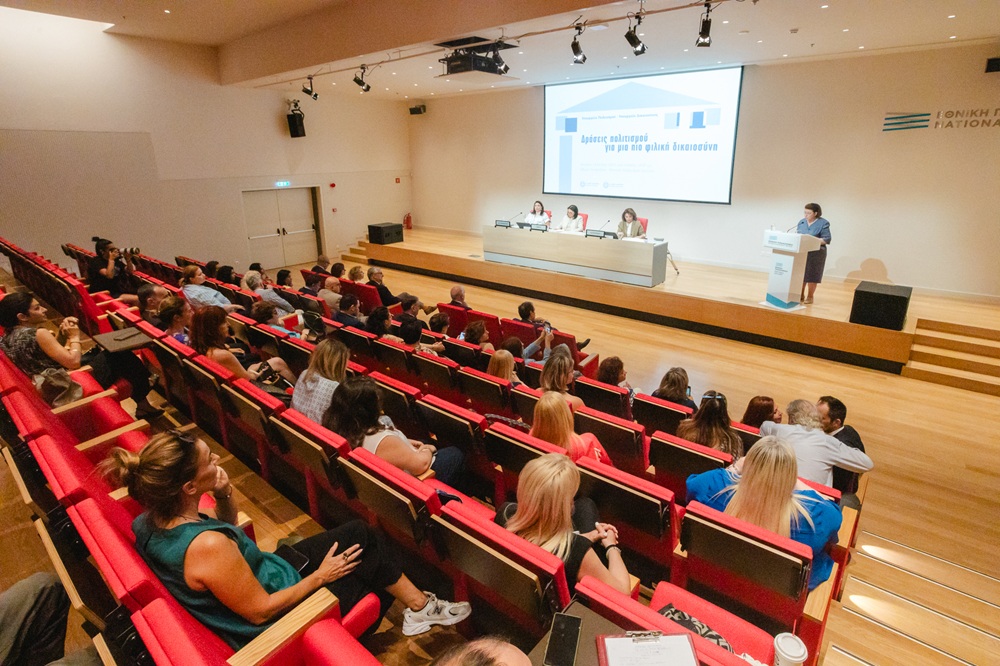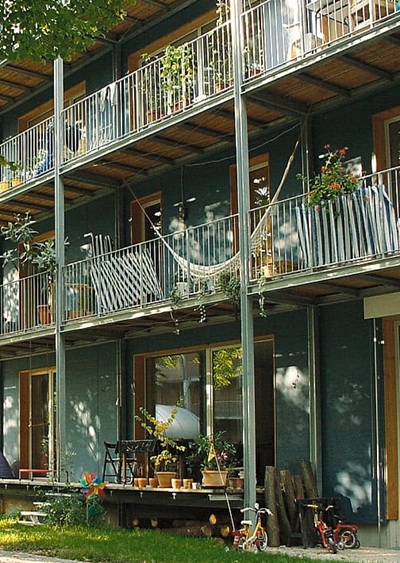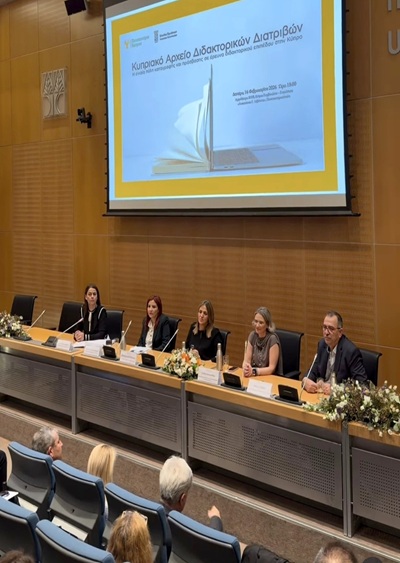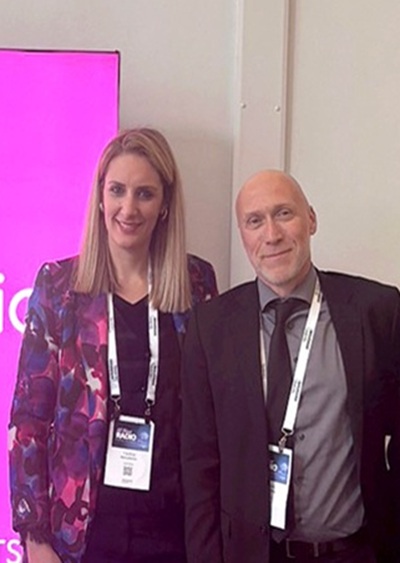
The Ministry of Culture and the Ministry of Justice presented, on Monday, July 14, 2025, at the National Gallery – Alexandros Soutsos Museum, the program “Cultural Actions for a More Friendly Justice.”
This is an innovative social policy initiative aimed at the reform and reintegration of juveniles with minor offenses through their participation in specially designed cultural activities.
Based on the Joint Ministerial Decision (Government Gazette B’ 2860/06.06.2025), the framework for implementing the reform measure of monitoring cultural programs is established, according to article 122 of the Penal Code. The measure is implemented by state, municipal, or private cultural bodies, such as museums, archaeological sites, and contemporary cultural structures, under the supervision of the Ministry of Culture.
As Lina Mendoni noted in her greeting: “The Ministry of Justice and the Ministry of Culture, sharing the same concern for the place of juvenile offenders in our society, join forces in an unprecedented reform step for our country, aiming for faster but mainly more effective reform of the juvenile offender.”
The Minister of Culture emphasized that “the guided actions will help them develop a sense of belonging, removing limitations not only due to their environment but also established social perceptions. By participating in cultural activities and through the relationships we believe will develop with their cultural educators, the juvenile offender adopts this sense, realizing that their behavior has not only led to a purely punitive reaction but that they have already taken the first step toward meaningful social reintegration. Especially due to the inherent experiential nature of Art and Culture, which is highly developed in adolescence. At the same time, juveniles can discover, through their contact with Culture and its expressions, previously unknown talents and skills, the utilization of which can be crucial later for their integration into society, as well as for creative employment and work. In an age of widespread confusion, Culture is particularly apt to create new opportunities for these children and serve as a compass for them. This is even more important for groups facing the risk of social exclusion. In our case, we therefore deal not only with reform but with meaningful inclusion and the provision of opportunities for definitive exit from delinquency and the start of a new beginning.“
As the Minister emphasized regarding the “genuine and profound reform, a milestone that, beyond its substance, also conveys the highest symbolism of a just, open, and cohesive society, opposing the convenient and easy solution of exclusion, superficial punishment, and negative criticism with the challenge of a second chance for these children, reintegration through participation and creativity, ultimately an acknowledgment and offering of a just state that gives opportunities even to those who have violated its institutional framework, which now defines civilized, democratic, and inclusive coexistence: it is worth it, even if we manage to help just one child find their way.”
On his part, the Minister of Justice, Giorgos Floridis, stressed: “This program seeks to prevent the consequences of juvenile delinquency and raise a protective barrier for their smooth reintegration into society. I am happy that we not only legislated it but now see how well structured this joint program with the Ministry of Culture, with Ms. Mendoni, is, and how encouraging its initial results are. Therefore, today’s joint presentation of this program strengthens us to continue this effort, support it as much as possible, and we are confident that many children will be saved.”
Under the “Cultural Actions for a More Friendly Justice” program, juvenile offenders aged 12 and above can participate in specialized activities designed and implemented by the Hellenic Ministry of Culture’s services in museums, monuments, and archaeological sites, as well as in cultural organizations supervised by the Ministry, encompassing performing and visual arts, cinema, and audiovisual media.
The program actively involves the Ministry of Culture’s services, including museums in Athens and Thessaloniki, and Ephorates of Antiquities from Messinia to Rodopi . Juveniles will attend three-month educational programs, with a minimum attendance of two hours per week. These programs are based on proven inclusion practices and supervised by experienced personnel from the Ministry of Culture, focusing on museum education applications that cover topics such as democratic governance, ancient Greek theater, women in antiquity, and the protection of monuments from natural and human-made hazards.
Activities are planned for groups of 6 to 15 individuals, on a weekly basis, organized by contemporary cultural institutions . The Greek Film Centre, Audiovisual Media, and Creation is responsible for conducting cinematherapy programs. Four theaters—the National Theatre of Northern Greece, the Municipal Theatre of Piraeus, and the Regional Municipal Theaters of Crete and Ioannina—will offer performance viewing programs and theater workshops. These will include active participation from the juveniles and interaction with mental health specialists, with whom they will discuss themes arising after the events and performances
The program presentation was conducted by Eutychia Katsigaraki, Head of the General Directorate of Special Legal Issues at the Ministry of Justice; Nikolette Saraga, Deputy Head of the Directorate of Archaeological Museums, Exhibitions, and Educational Programs of the Ministry of Culture; and Margarita Alexomanolaki, Head of the Directorate of Performing Arts and Cinema of the Ministry of Culture. The evaluation of the first implementation of the educational initiative for juvenile offenders in Thessaloniki (June – July 2025) was presented by Nadia Romanidou, Head of the Juvenile Supervisors Service in Thessaloniki at the Ministry of Justice, and Elisavet Tsigarida, Deputy Head of the Ephorate of Antiquities of Thessaloniki City.
Attending the presentation of the “Cultural Actions for a More Friendly Justice” program were Deputy Minister of Justice Giannis Bougas, Secretary General of Justice Pelops Laskos, Secretary General of the Ministry of Culture Giorgos Didaskalou, President of the Council of State Michalis Pikramenos, President of the Supreme Court Anastasia Papadopoulou, President of the Audit Court Sotiria Ntouni, General Director of Antiquities and Cultural Heritage Olympia Vikatos, as well as officials from both Ministries.







Leave A Comment